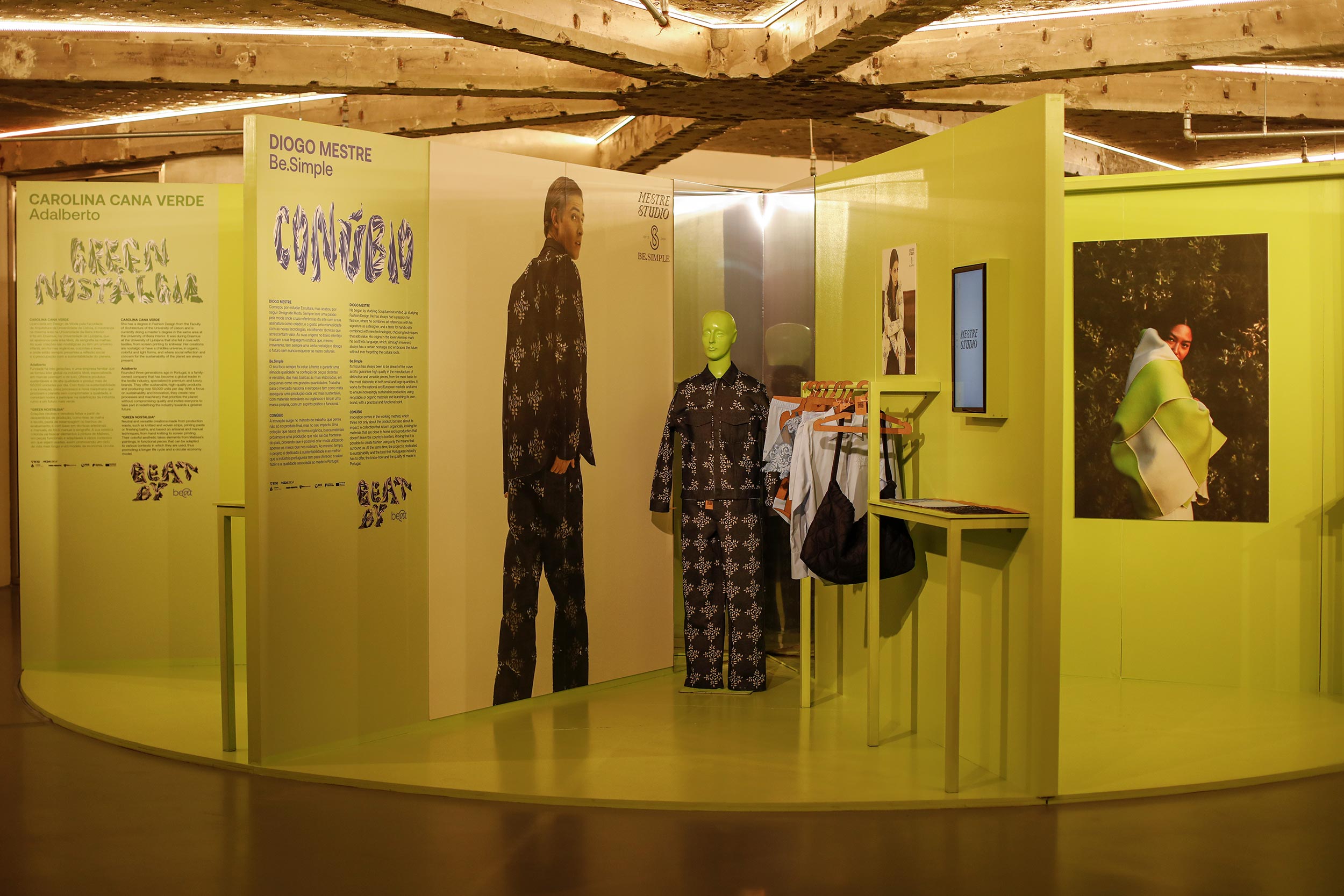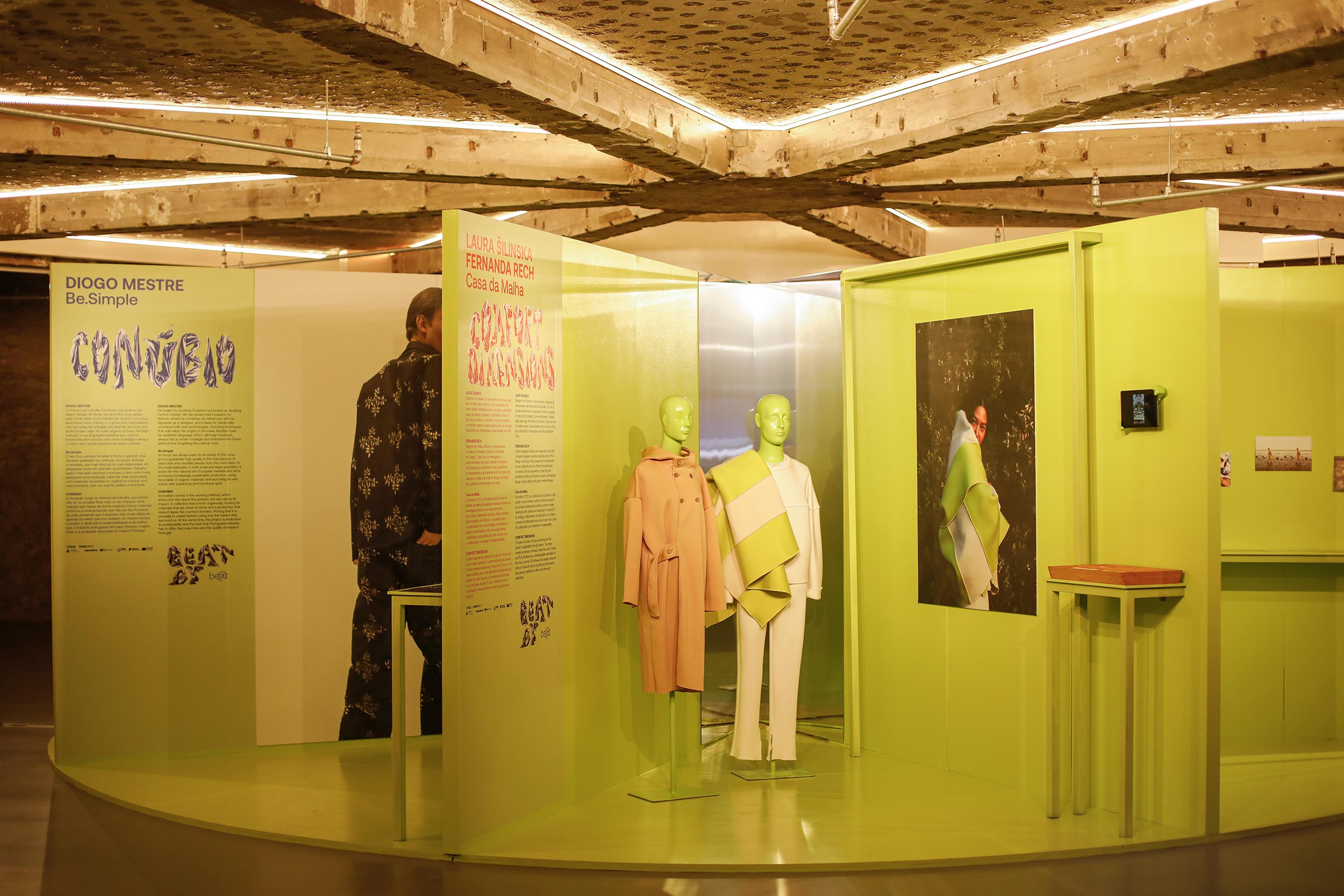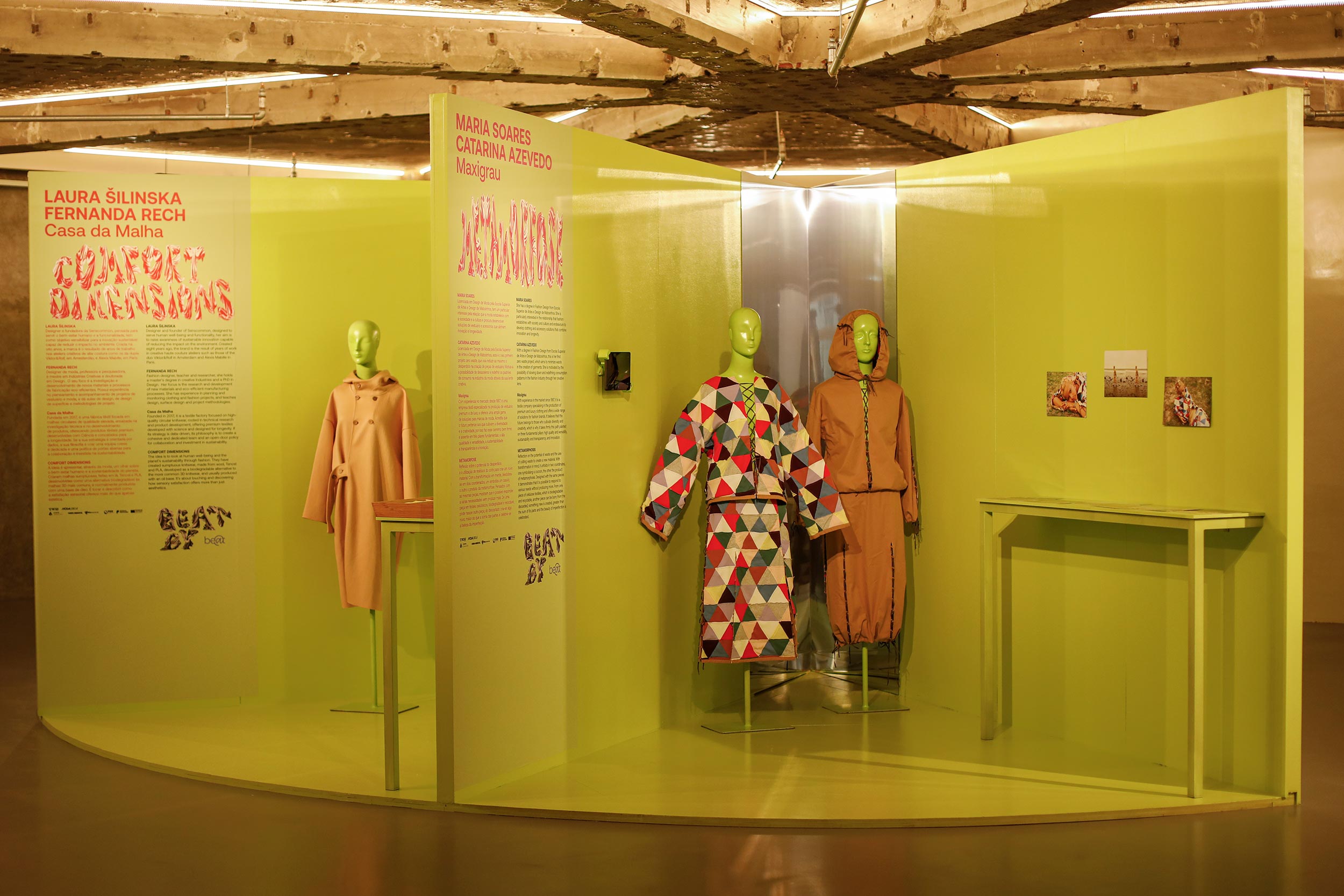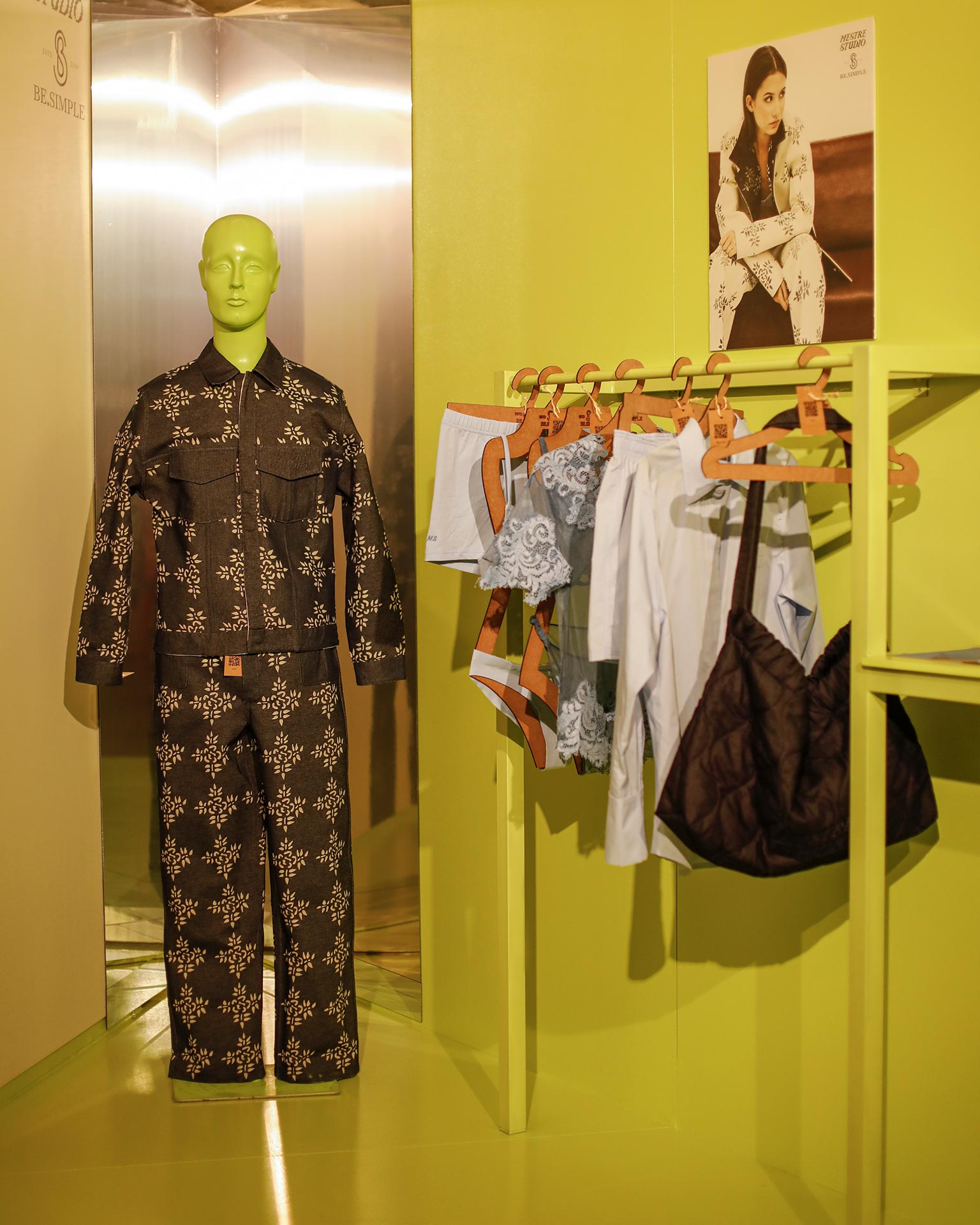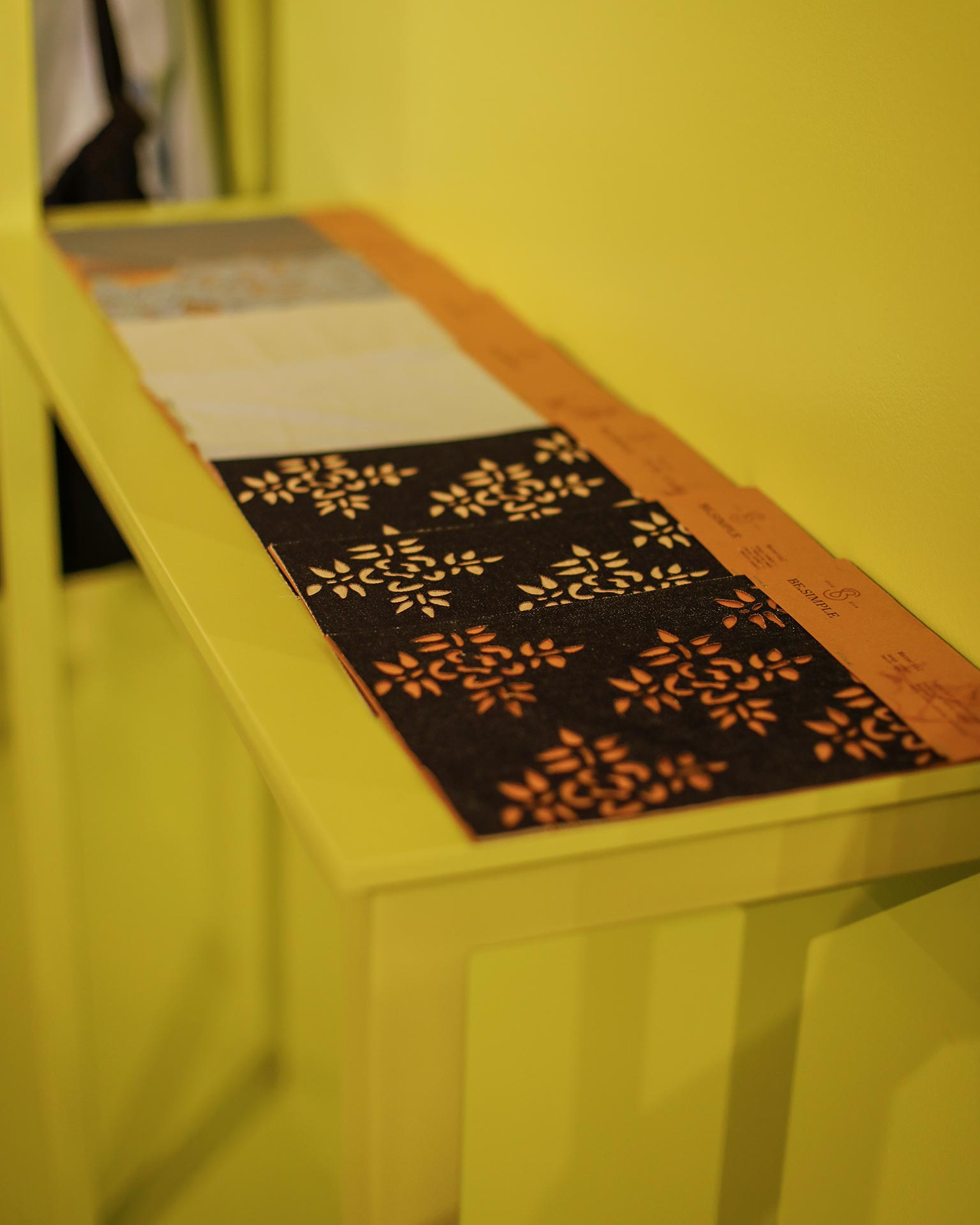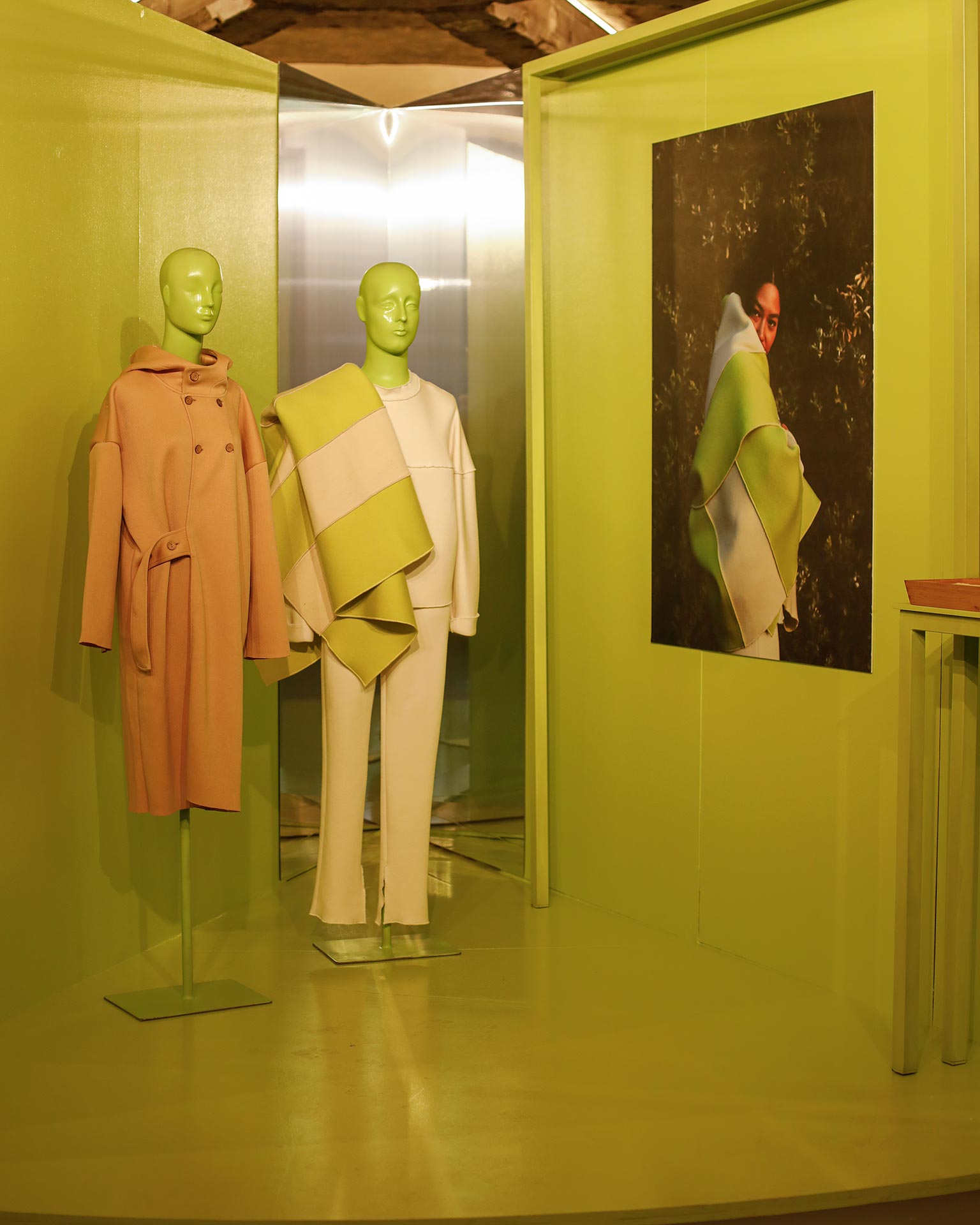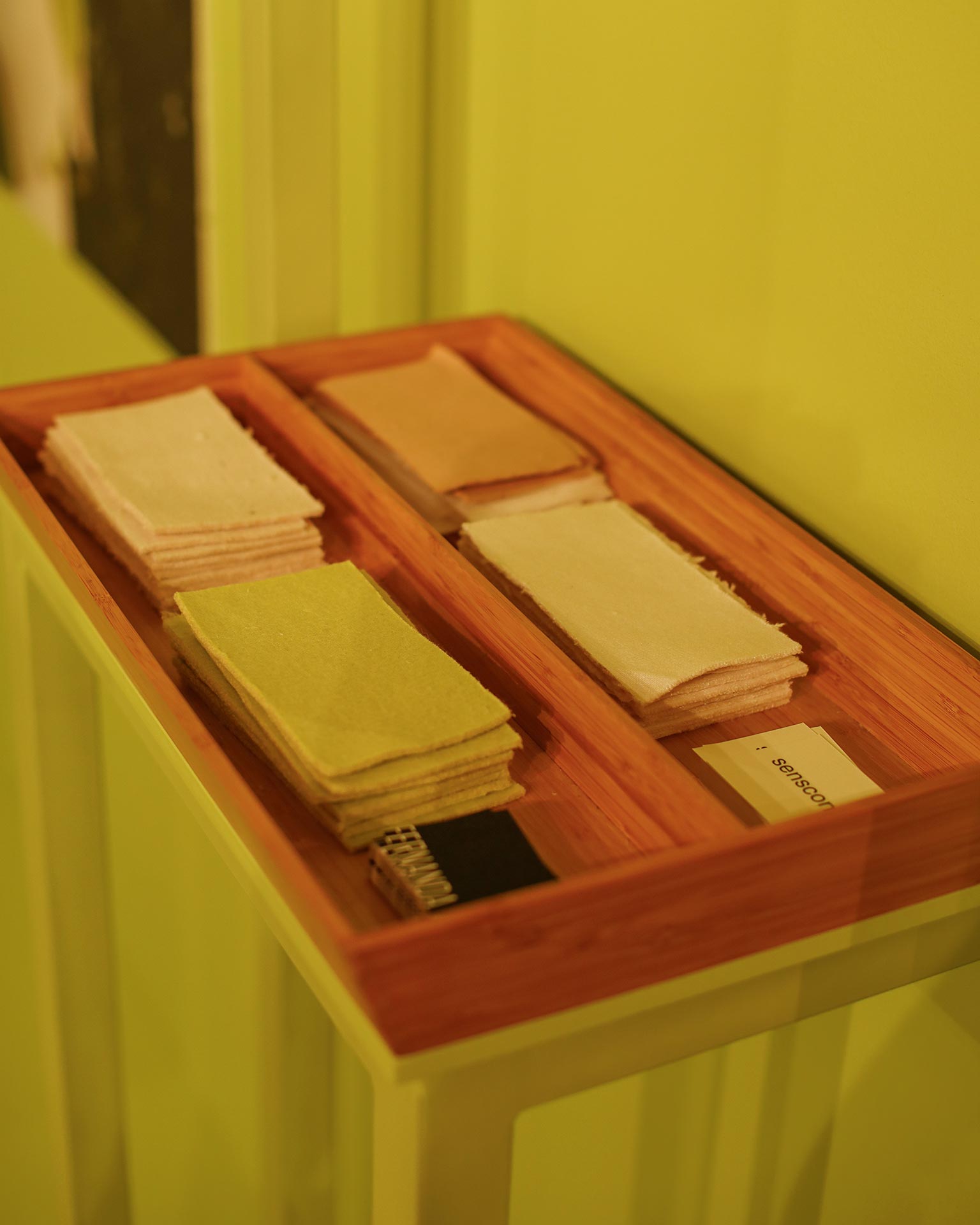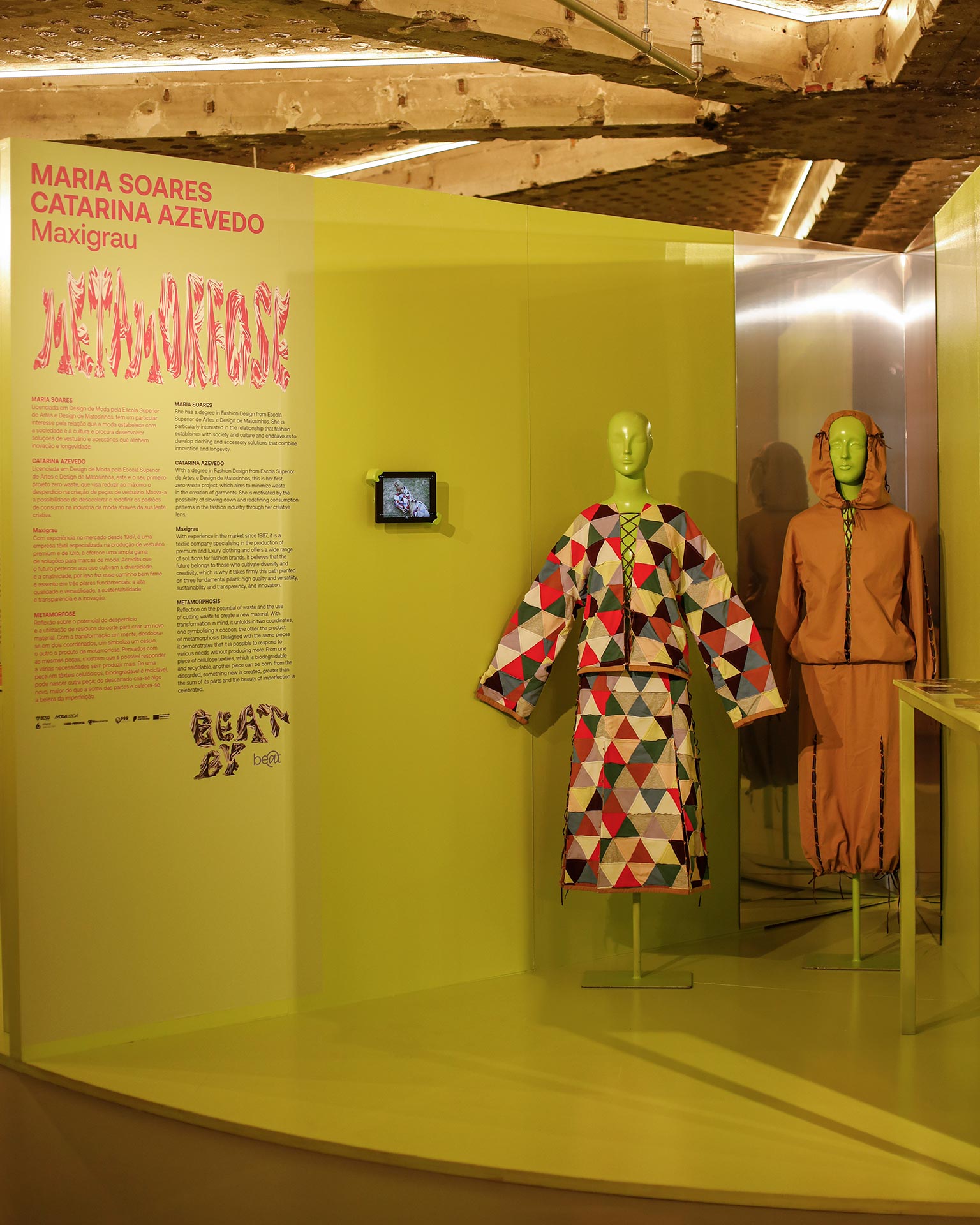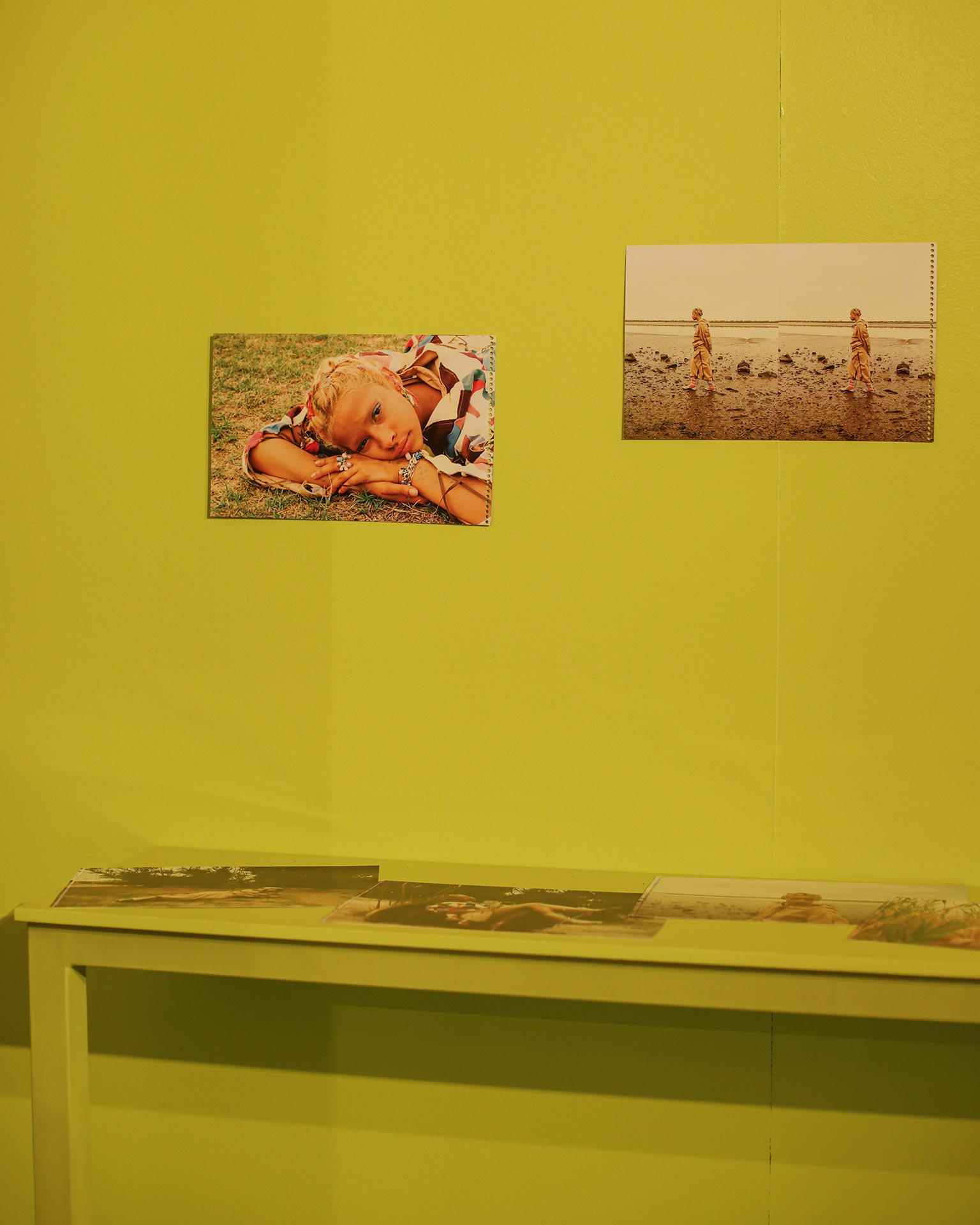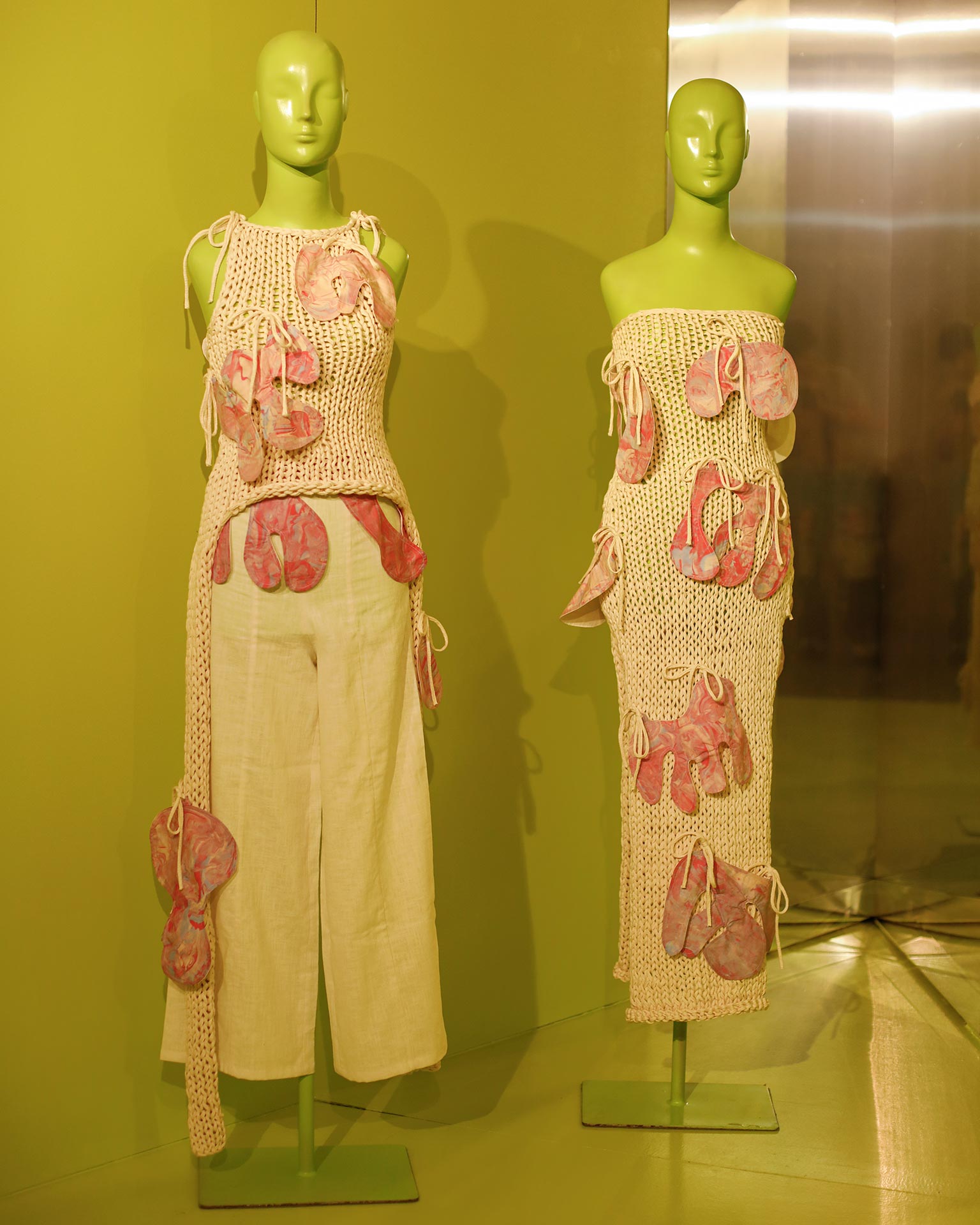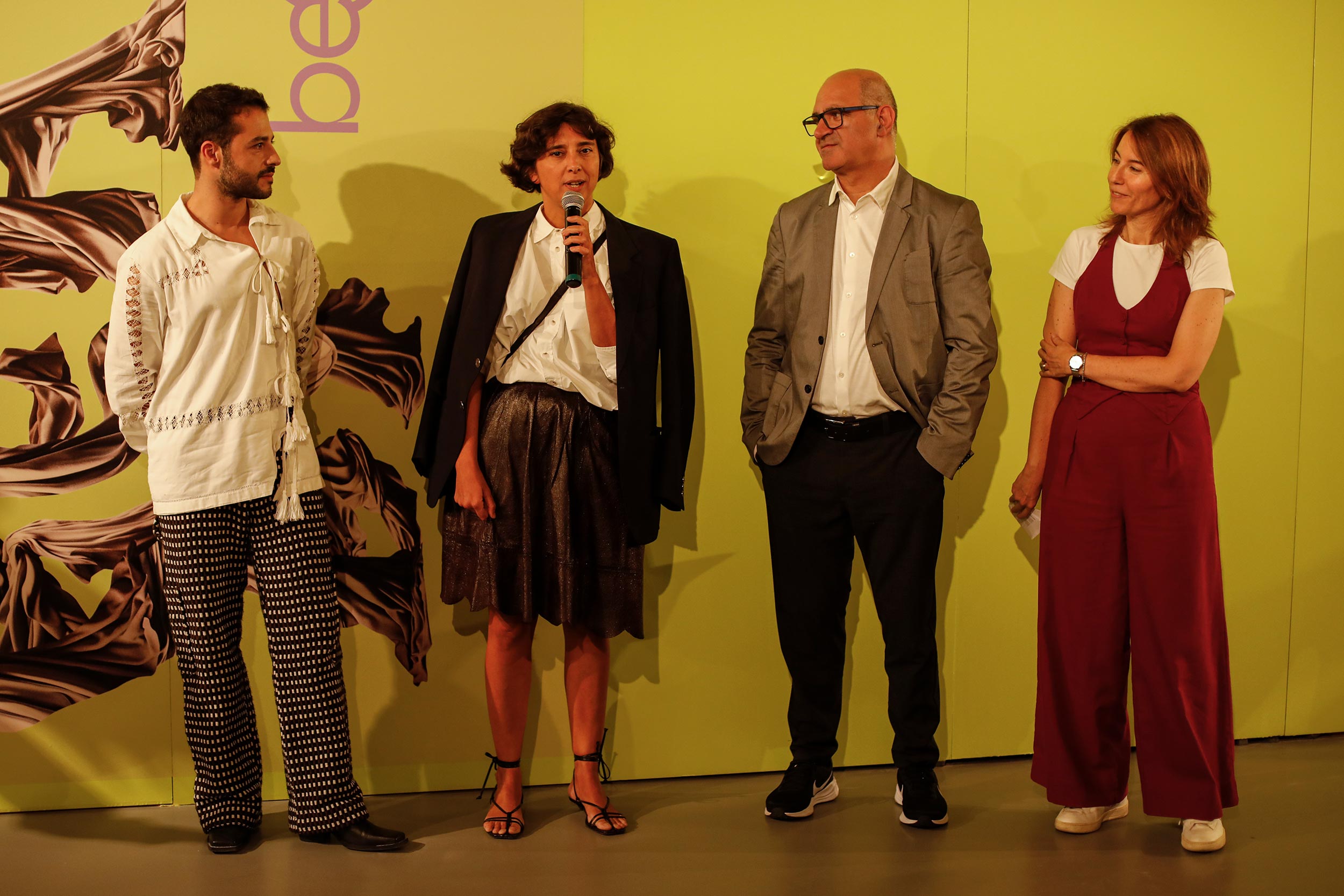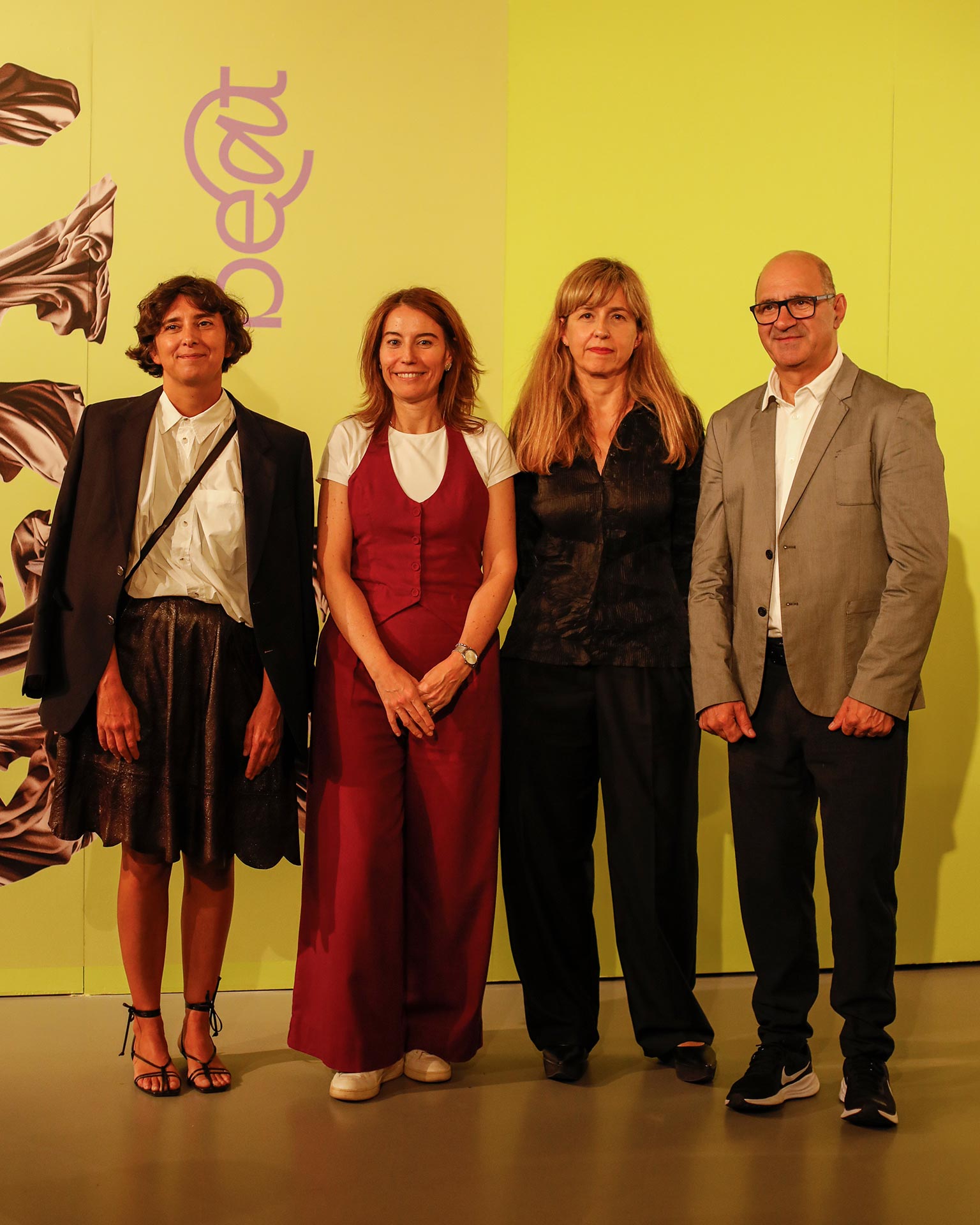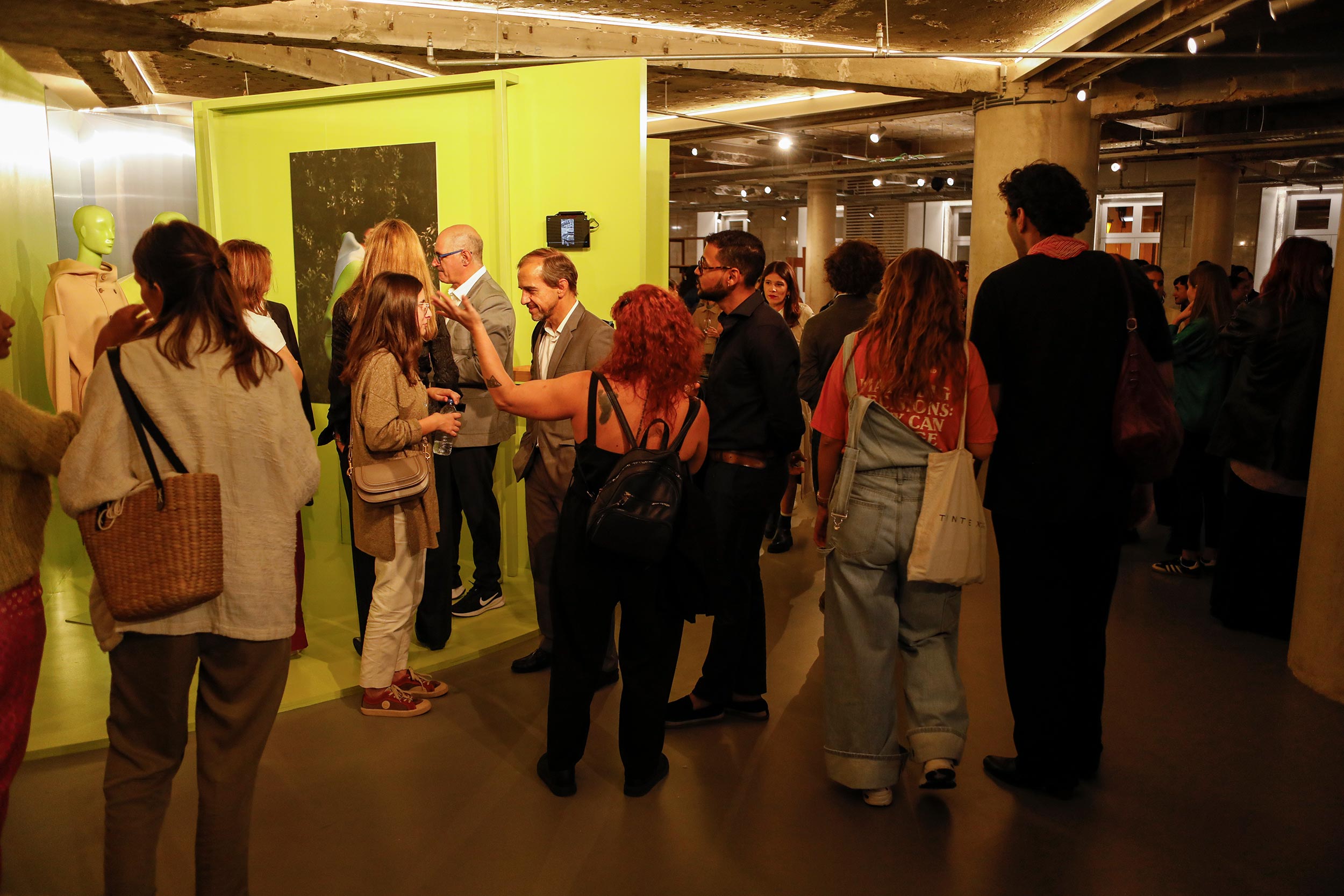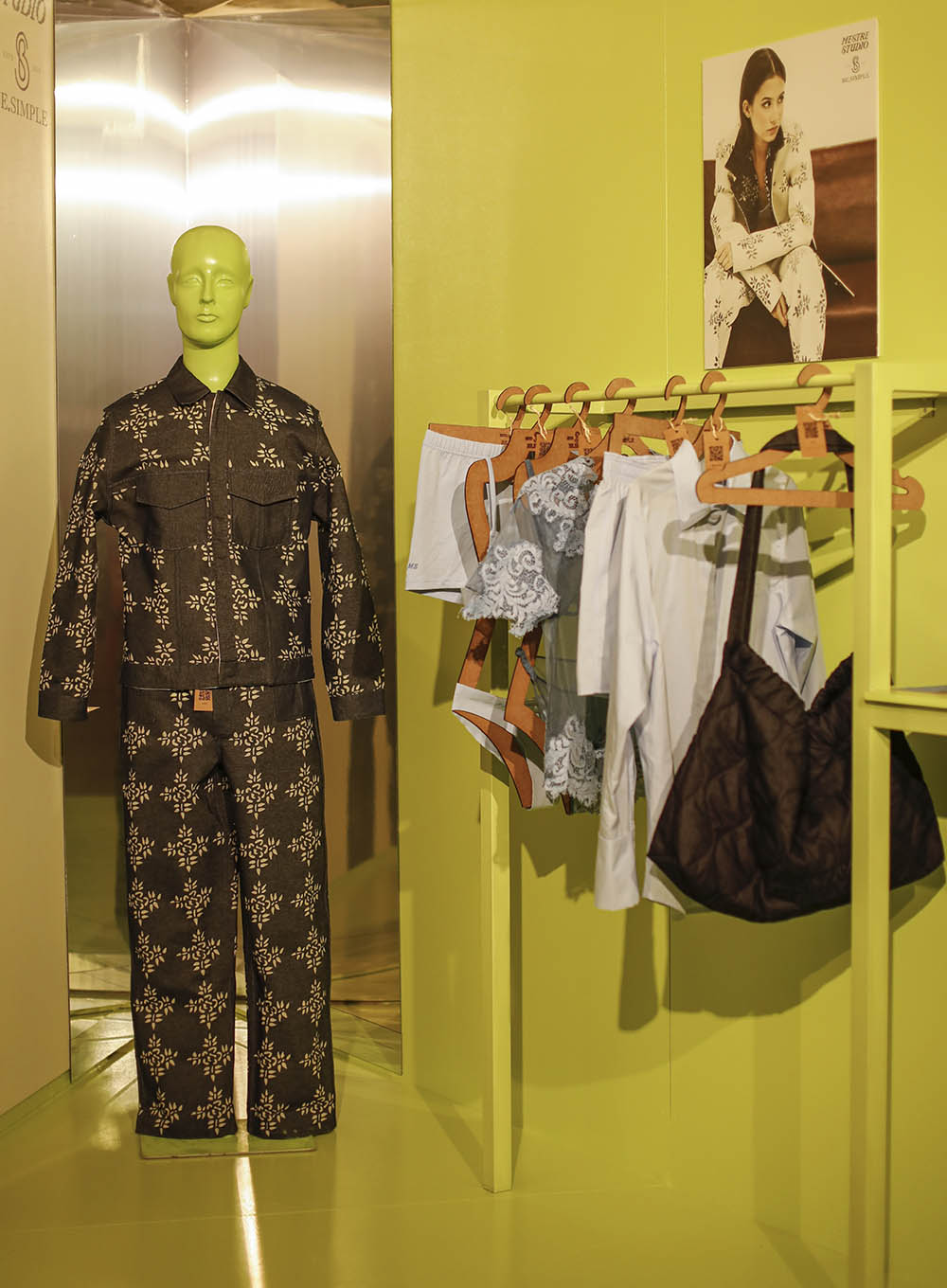
DIOGO MESTRE X BE.SIMPLE
WINNER TEAM
PROJECT: CONÚBIO
Innovation comes from the work method, which thinks not only about the end product, but also about its impact. A collection that is born organically, looking for materials that are close to home and a production that doesn't leave the country's borders. Proving that it is possible to create fashion using only the means that surround us. At the same time, the project is dedicated to sustainability and the best that Portuguese industry has to offer, the know-how and the quality of Made in Portugal.
Diogo Mestre began by studying Sculpture but ended up studying Fashion Design. He has always had a passion for fashion, where he combines art references with his signature as a Designer, and a taste for craftmanship combined with new technologies, choosing techniques that add value. His origins in the lower Alentejo mark his aesthetic language, which, although irreverent, always has a certain nostalgia and embraces the future without ever forgetting his cultural roots.
Be.Simple's focus has always been to be ahead of the curve and to guarantee high quality in the manufacture of distinctive and versatile pieces, from the most basic to the most elaborate, in both small and large quantities. It works for the national and European markets and aims to ensure increasingly sustainable production, using recyclable or organic materials and launching its own brand, with a practical and functional spirit.
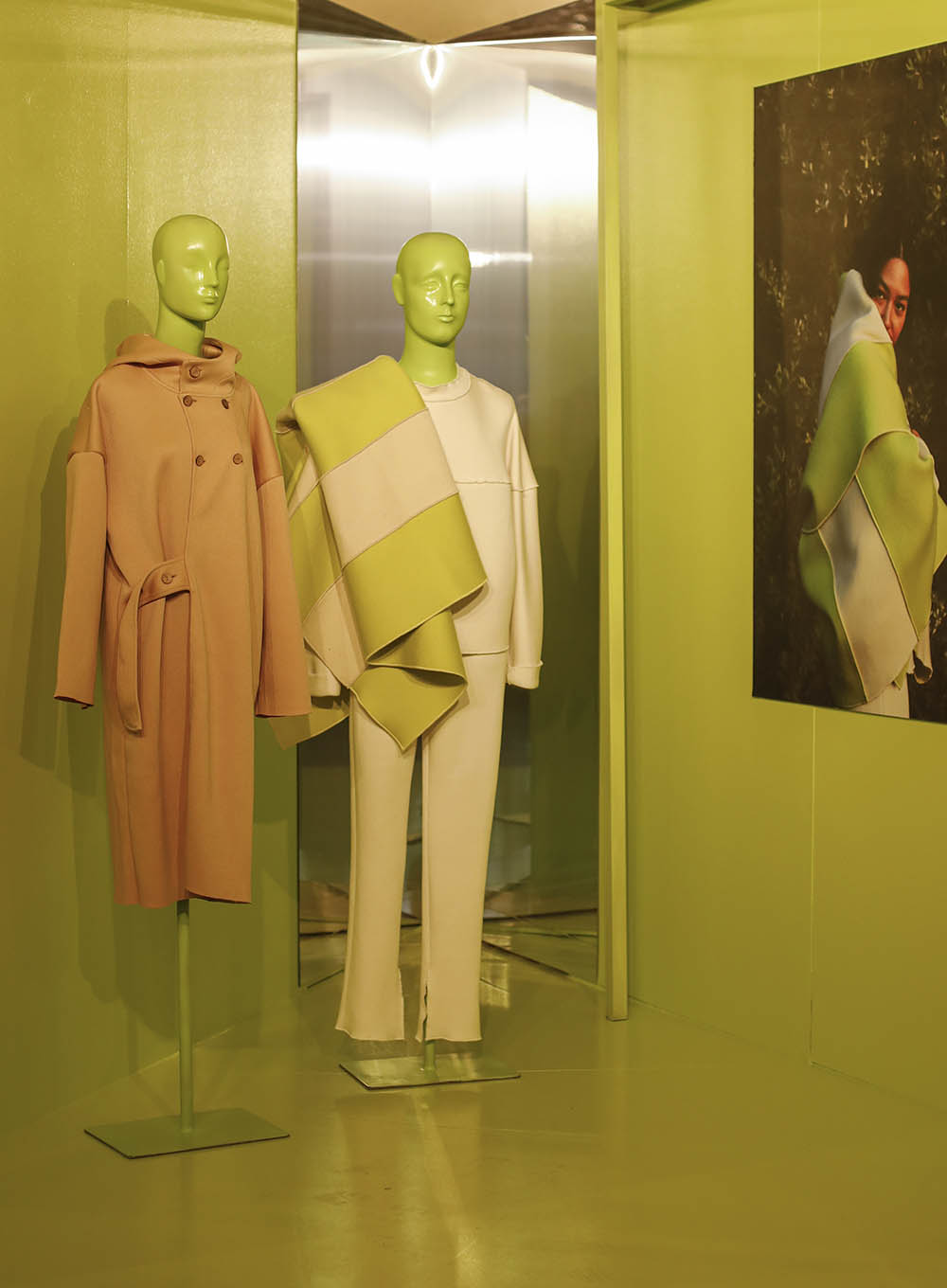
LAURA SILINSKA & FERNANDA RECH X CASA DA MALHA
WINNER TEAM
PROJECT: COMFORT DIMENSIONS
The idea is to take a look at human well-being and the planet’s sustainability through fashion. The team has created sumptuous knitwear, made from wool, Tencel and PLA, developed as a biodegradable alternative to the more common 3D knitwear, and usually produced with an oil base. It's about touching and discovering how sensory satisfaction offers more than just aesthetics.
Laura Silinska is Designer and founder of Senscommon, designed to serve human well-being and functionality, her aim is to raise awareness of sustainable innovation capable of reducing the impact on the environment. Created eight years ago, the brand is the result of years of work in creative haute couture ateliers such as those of the duo Viktor&Rolf in Amsterdam and Alexis Mabille in Paris.
Fashion designer, teacher and researcher, Fernanda Rech holds a Master's degree in Creative Industries and a PhD in Design. Her focus is the research and development of new materials and eco-efficient manufacturing processes. She has experience in planning and monitoring clothing and fashion projects, and teaches design, surface design and project methodologies.
Founded in 2017, Casa da Malha is a textile factory focused on high-quality circular knitwear, rooted in technical research and product development, offering premium textiles developed with science and designed for longevity. If its strategy is data-driven, its philosophy is to create a cohesive and dedicated team and an open-door policy for collaboration and investment in sustainability.
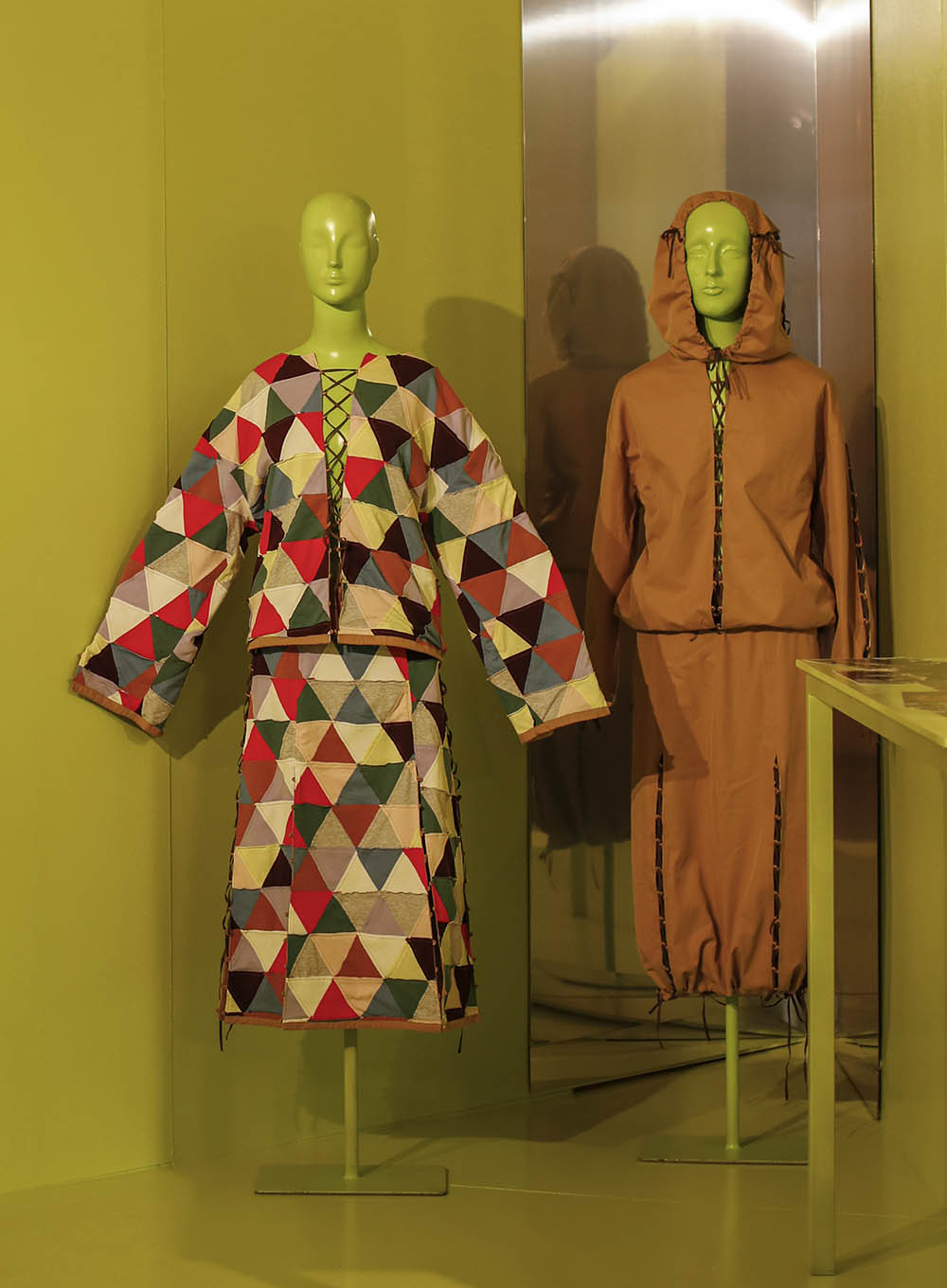
MARIA SOARES & CATARINA AZEVEDO X MAXIGRAU
PROJECT: METAMORPHOSIS
Reflection on the potential of waste and the use of cutting waste to create a new material. With transformation in mind, it unfolds in two coordinates, one symbolising a cocoon, the other the product of metamorphosis. Designed with the same pieces, it demonstrates that it is possible to respond to various needs without producing more. From one piece of cellulose textiles, which is biodegradable and recyclable, another piece can be born; from the discarded, something new is created, greater than the sum of its parts, celebrating the beauty of imperfection.
Maria Soares has a degree in Fashion Design from Escola Superior de Artes e Design, Matosinhos. She is particularly interested in the relationship that fashion establishes with society and culture, and endeavours to develop clothing and accessory solutions that combine innovation and longevity.
Catarina Azevedo has a degree in Fashion Design from Escola Superior de Artes e Design de Matosinhos. This is her first zero waste project, which aims to minimize waste in the creation of garments. She is motivated by the possibility of slowing down and redefining consumption patterns in the fashion industry through her creative lens.
With market experience since 1987, Maxigrau is a textile company specialising in the production of premium and luxury clothing, and offers a wide range of solutions for fashion brands. It believes that the future belongs to those who cultivate diversity and creativity, which is why it is taking a firm path based on three fundamental pillars: high quality and versatility, sustainability and transparency, and innovation.
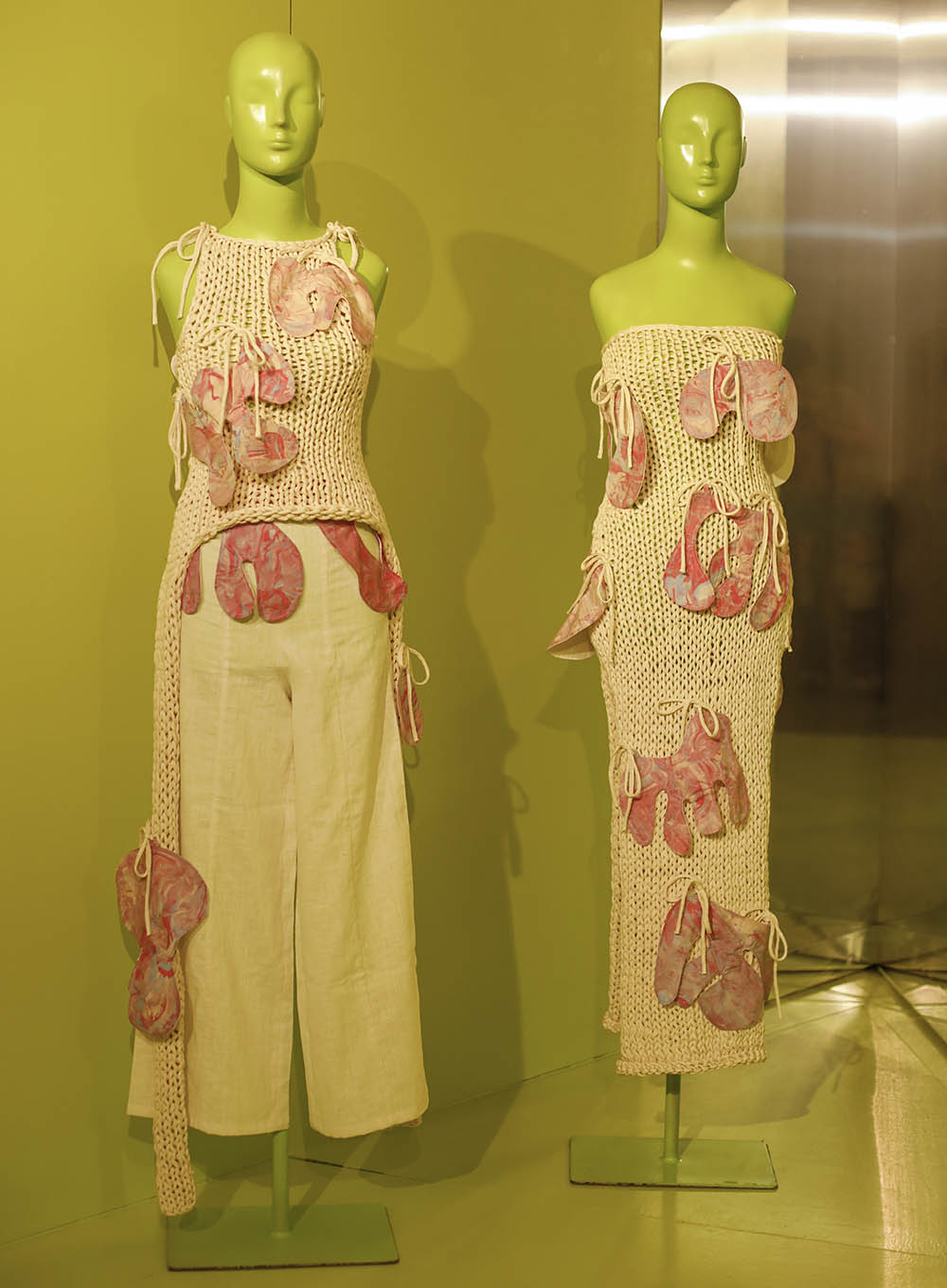
CAROLINA CANA VERDE X ADALBERTO
PROJECT: GREEN NOSTALGIA
Neutral and versatile creations made from production waste, such as knitted and woven strips, printing paste or finishing baths, and based on artisanal and manual techniques, from hand knitting to screen printing. Their colourful aesthetic takes elements from Matisse's paintings, in functional pieces that can be adapted to various contexts in which they are used, thus promoting a longer life cycle and a circular economy model.
Carolina Cana Verde has a degree in Fashion Design from the Faculty of Architecture of the University of Lisbon and is currently doing a master's degree in the same area at the University of Beira Interior. It was during Erasmus at the University of Ljubljana that she fell in love with textiles, from screen printing to knitwear. Her creations are nostalgic or have a childlike universe, in organic, colourful and light forms, and where social reflection and concern for the sustainability of the planet are always present.
Founded three generations ago in Portugal, Adalberto is a family-owned company that has become a global leader in the textile industry, specialized in premium and luxury brands. They offer sustainable, high-quality products and producing over 50,000 units per day. With a focus on sustainability and innovation, Adalberto creates new processes and machinery that prioritize the planet without compromising quality and invites everyone to take part in redefining the industry towards a greener future.
From October 10 to 13, at MUDE - Museu do Design, beat by be@t returned to Lisboa Fashion Week to present the materialization of its second edition.
beat by be@t arises from the certainty that change is only possible through creativity and collaboration. It seeks sustainable and circular solutions to address the pressing and urgent challenges of an industry that contributes significantly to overconsumption and climate change.
In this exhibition, exclusive for MODALISBOA SINGULAR, there are four innovative circular textile projects developed by teams composed of fashion designers and small and medium-sized enterprises.
Diogo Mestre X Be.Simple and Laura Silinska & Fernanda Rech X Casa da Malha were the winning teams of the second edition of beat by be@t, a program designed by BCSD Portugal, that is part of be@t, a consortium of 55 entities led by CITEVE and co-financed by the PRR (Recovery and Resilience Plan), which paves the way for the transition to the bioeconomy of the textile sector.
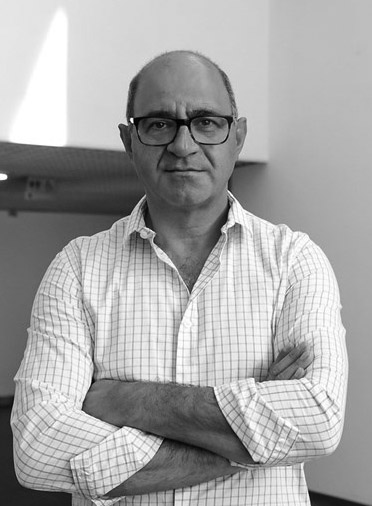
Braz Costa
Born in Portugal in 1962, António Braz Costa graduated in Mechanical Engineering from the University of Minho in 1989 and completed his studies in Advanced Public Management at the National Institute of Administration in 2008.
He currently holds several prominent positions, namely:
General Manager at CITEVE – Technological Centre for Textile and Clothing Industries in Portugal, since January 2000.
CEO at CeNTI – Centre of Nanotechnology and Advanced Materials, since April 2012.
President at Textranet - European Network of Textile Research Organizations, since 2010.
Vice President at Textile ETP, European Technological Platform for the Future of Textiles and Clothing, since 2013.
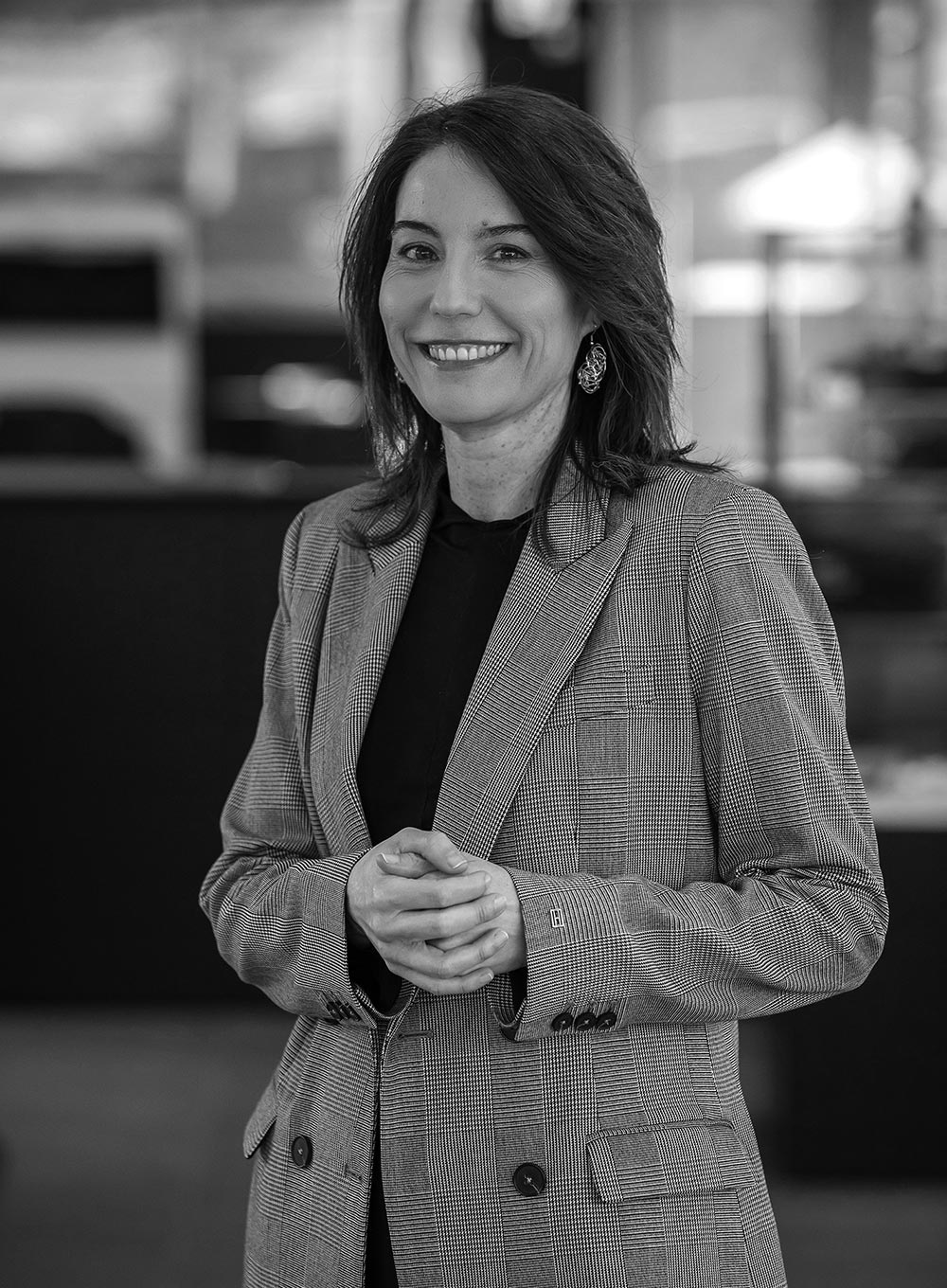
Filipa Pantaleão
An environmental engineer by training, her professional experience has made her an environmentally aware manager. She has a degree from the Faculty of Science and Technology of Universidade Nova de Lisboa, an MBA from the Faculty of Economics and Business Sciences of Universidade Católica Portuguesa and experience in managing companies linked to the water, logistics, energy and waste sectors. At the same time, she wants to contribute to a better future by promoting equality and inclusion in companies and demystifying new ESG issues. She is co-founder of Women in ESG Portugal.
